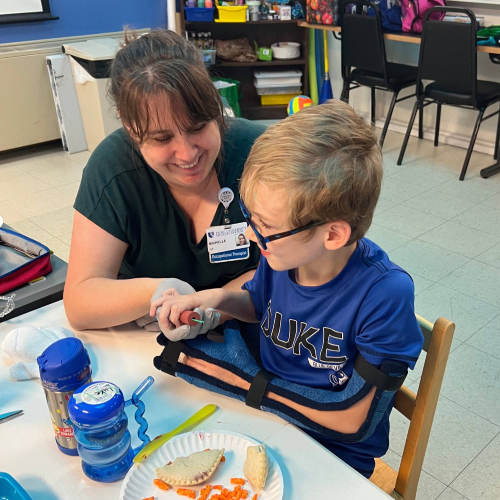Constraint-induced movement therapy has been shown to help children with hemiplegia -- which may be caused by cerebral palsy, traumatic brain injury, stroke, or brachial plexus injury -- improve their muscle strength, coordination, and range of motion on the affected side of their body. During therapy, your child will wear a cast that covers the hand and wrist of their stronger arm. The cast encourages them to use their weaker arm to perform activities. CIMT encourages the brain to communicate better with the affected hand and prompts children to use their weaker side more often and with better coordination. After completing constraint-induced movement therapy, children often gain independence with self-care skills like getting dressed, eating, or brushing their teeth. They may also feel more self-confident and have a better quality of life.
A Modified Approach
Traditionally, constraint-induced movement therapy can last up to six weeks. Pediatric therapists in our program use a modified intensive approach to better suit the needs of busy families. Research suggests that children in group-based therapy performed in a camp-like setting benefit not just from the therapy itself, but also from interacting and learning from peers with similar challenges.

